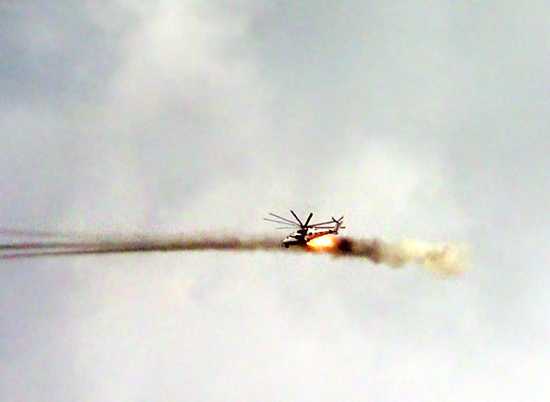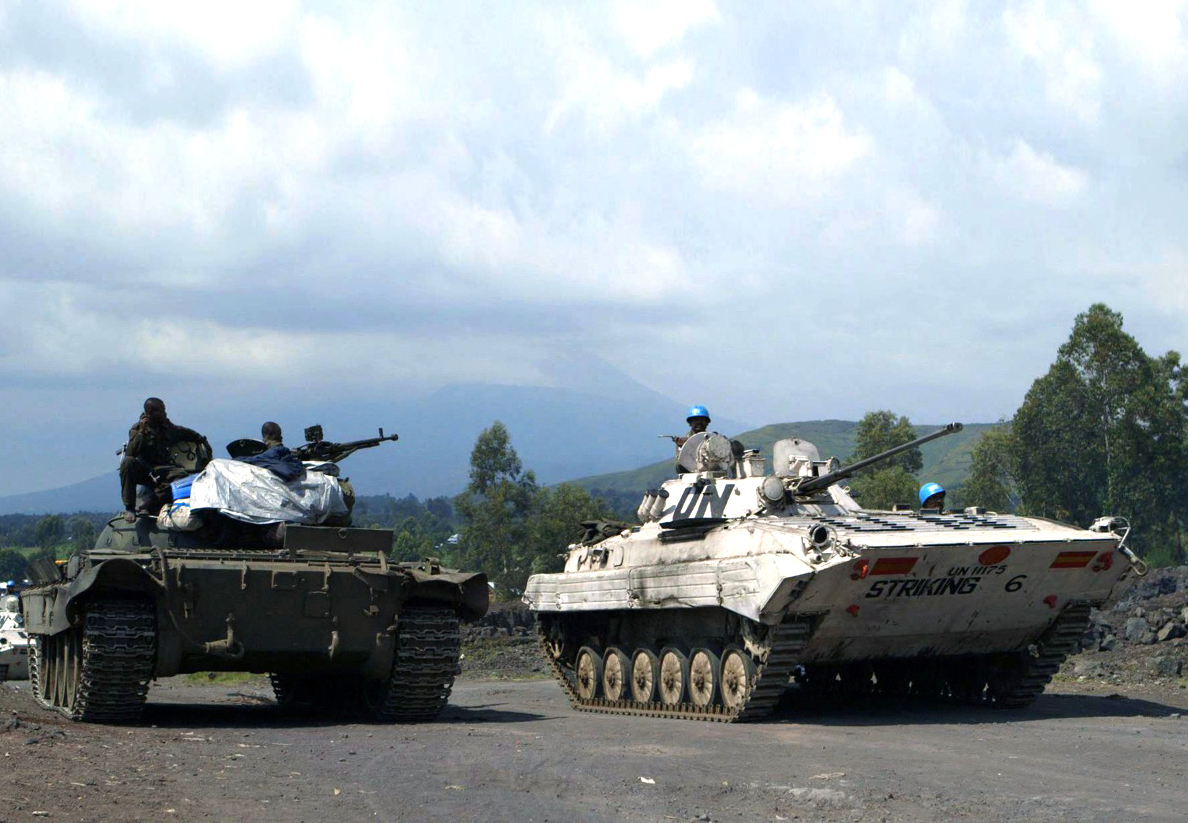Rebels Take Goma, Unrest Ensues In The Region
By Gorilla Doctors Staff on Wednesday, November 28th, 2012 in Blog.by Jessica Burbridge UN helicopter firing on M23 rebels. © Virunga National Park
UN helicopter firing on M23 rebels. © Virunga National Park
Rebel action has flared up once again in the eastern part of the Democratic Republic of Congo, preventing Gorilla Doctors from traveling to the parks to monitor mountain and Grauer’s gorillas for injury and illness. Currently, our Congolese veterinarians are safe in Goma, the regional capital of North Kivu Province, although the city is occupied by the M23 rebels and therefore the situation is precarious.
“Drs. Eddy, Martin and Jacques are all safe in Goma with their families” says Regional Veterinary Manager Dawn Zimmerman. “We have sent solar panels over the border to at least get them some power. The fighting has definitely made our work in the region more difficult and more dangerous but we will continue to do everything we can to ensure the safety and well-being of our staff, as well as the health of endangered gorillas.”
After three months of relative peace between the M23 rebels and the Congolese Army, the fighting erupted once again in and around Virunga National Park on Thursday, November 15. Over the following days, the M23 gained ground, capturing villages surrounding the city of Goma, and pushing the Congolese military back. On Tuesday November 20, the rebels captured the city, reportedly with very little resistance from the Congolese military or the UN troops stationed there.
 Congolese Army and UN tanks, side by side, in Goma. © Virunga National Park
Congolese Army and UN tanks, side by side, in Goma. © Virunga National Park
The M23 is comprised of former CNDP (National Congress for the Defense of the People) rebels. The group formed in early May when 1,500 troops defected from the Congolese Military, following General Bosco Ntaganda in his mutiny.
An estimated 500,000 people have been displaced in the recent fighting in the region. Refugees have fled camps on foot, their backs bent under the weight of their possessions. Many NGO expatriate staffers evacuated the city, crossing the border into Gisenyi, Rwanda. The Gorilla Doctors’ Congolese staff members based in Goma chose to remain with their families, at their homes. Much of Goma has lost power and water. The city is situated at the north of Lake Kivu, but collecting water from the lake could lead to a disease outbreak, like the cholera epidemic that swept through refugee camps in previous years.
The M23 has held Goma for seven days now. A representative for the group has stated that they will only withdraw their troops if all of the remaining Congolese military in Goma is disarmed, the Congolese electoral commission is dissolved and freedom is granted to Etienne Tshisekedi, who lost the presidential election in 2011 to Joseph Kabila. The rebel group has threatened to march to Bukavu, the other major city in the east, and then on to Kinshasa to achieve their goal.
Many are concerned that the current M23 rebel uprising will lead to a resurgence of the 1997-2003 civil war that ravaged the country and killed over 5 million people. Oxfam has warned that with over 2.5 million displaced people throughout eastern DR Congo, a humanitarian disaster may be on the horizon.
For more about the situation in DRC and how it affects great apes, read the New Scientists’ article “Endangered Primates Caught in Congolese Conflict”.


 Donate
Donate